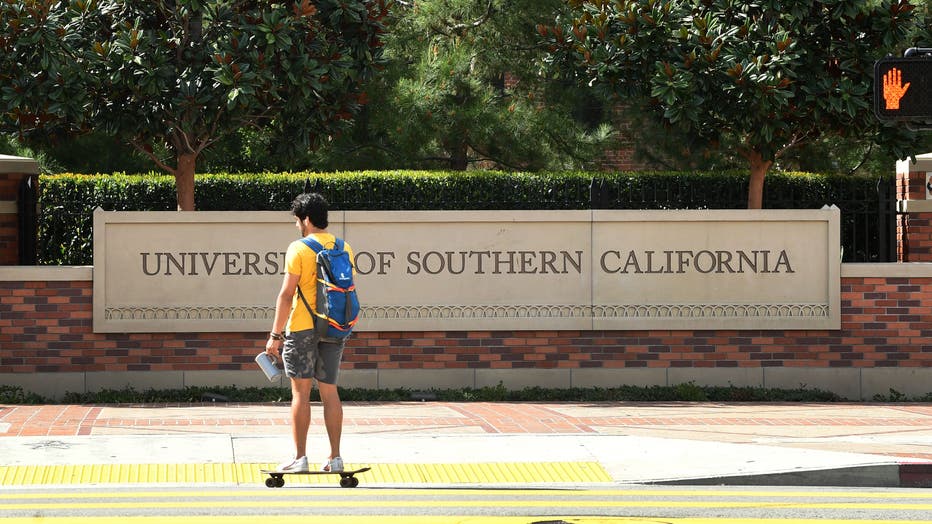USC to expand virus testing after 45 students linked to Greek Row test positive for COVID-19
LOS ANGELES - A coronavirus outbreak has been identified along the University of Southern California's fraternity row, as the university's Student Health announced Thursday it will expand COVID-19 testing as part of its strategy to help keep students, faculty and staff safe on its campuses.
Fraternity houses line 28th Street, where about 40 people have tested positive for COVID-19, Dr. Sarah Van Orman, USC Student Health's chief health officer, told the Los Angeles Times.
"A significant number of the cases were associated with four fraternity houses,'' Van Orman said.
She said the off-campus houses are not controlled by the university and it was unclear if the infections involved fraternity members, who often lease rooms out during the summer.
About 150 Trojan students and employees have tested positive so far, even as the school has moved the vast majority of classes online, canceled events, limited on-campus housing, added mask requirements as well as social-
distancing and symptom-checking measures and regularly report infection data.

A skateboarder commutes at the University of Southern California (USC) in Los Angeles, California on March 11, 2020, where a number of southern California universities, including USC, have suspended in-person classes due to coronavirus concerns. (Pho
"Unless all of us understand that right now our only tools are physical distancing and wearing masks, we're going to continue to have devastation, not only in terms of the economy, our learning, our academics, our jobs, but people dying,'' Van Orman said. "Each of us have to decide what we stand for. Frats need to do that as well.''
RELATED: Stay up to date on all coronavirus-related information
Meanwhile, the university announced Thursday that beginning in August, it will begin ramping up to a minimum of 500 tests per day for students and on-site faculty and staff. It will set up three observed sample-collection sites and will eventually transition to an unobserved self-collection model to increase access to fast, convenient and efficient surveillance testing, according to Van Orman.
"By increasing our testing capacity, we will be able to more quickly capture and contain sources of infection,'' Van Orman said.
She added that partnering with Color, a company that specializes in distributed healthcare and clinical testing, "will expand our knowledge of prevalence and detection of asymptomatic cases at USC, so that we may make better-informed healthcare decisions.''
The program is being operated through Color's technology and testing infrastructure, including software to manage risk screening, onsite and
distributed testing logistics and processing of samples.
"USC is at the forefront of implementing a responsible, evidence-based program to optimize a safe campus,'' said Color CEO Othman Laraki.
"Convenient and regular surveillance testing with rapid turnaround times can
significantly reduce the risk of a campus outbreak.''
The population surveillance testing program, named "Pop Testing,'' is scheduled to begin next month with current summer campus constituents and expand to the larger campus populations throughout the fall semester.
Get breaking news alerts in the FOX 11 News app. Download for iOS or Android.

